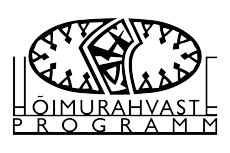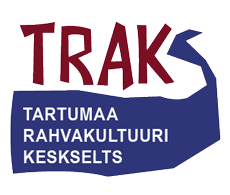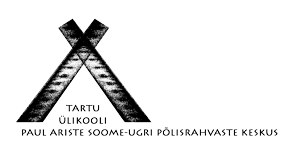Kui tulloo süvä sügüzü
(Recruit’s Song)
Meel Valk and choir
In Ingrian
Kui tulloo süvä sügüzü,
kova talavi tallajaa,
kaalinna, kaalinna, kaalinam-majaa,
kova talvi tallajaa,
kuuzed mustaks saava muuttuut,
haavat hallin karvaizeks,
haavat hallin karvaizeksi,
koivut kullan karvaizeeks.*
Nii poikii poimidaa,
valkeepäid valitsettaa.
Kellen arba hüppäjää?
Arba hüppääz armattomal,
arba hüppääz armattomal,
emottomal enzimäizeks.
Rigaz veli riivutteli,
rattahille rabutteli.
Vietiin ottajan oville,
katsojaizen kardanolla.
Ottaja ovilda küssüü:
“Uot sie poiga omaa süüdä,
uot sie poiga omaa süüdä
vaan oot vallav väärüüvestä?”
“Em mie uo omasta süüstä,
enk uo vallav väärüüvestä,
miun on luoja vallal luonut
näidä maida marssimaa,
näidä maida marssimaa,
näidä teidä tallaamaa.”
Annettii sini-sineli,
annetti musta munderii.
Joutsen joukko, hanhiparvi,
viekää miun emolle viesti,
viekää miun emolle viesti,
sana saunoituojallee:
hüvä on olla soldaattina,
kiiskevezi on juodavana,
kiiskevezi juodavana,
puhas leib on süödävänä,
aret käümmä ambumassa,
pühät püssüjä puhassam.
Püssü agaks annettii,
miekka mieliksi hüviksi.
In English
When the full autumn approaches,
The harsh winter walks in,
The firs go black,
The aspens go grey,
The aspens go grey,
The birches the colour of gold.
Then the boys are picked,
The fair-haired are chosen.
Whose lot is cast?
The orphan’s lot is cast,
The orphan’s lot is cast,
The motherless was the first.
The rich brother ripped [the conscript],
Rattled him on the carriage.
Was taken to the door of the recruiter,
To the yard of the overseer.
The recruiter asks from the doorstep:
“Boy, are you here because of your own guilt,
Boy, are you because of your own guilt
Or because of the government’s injustice?”
“No, I’m not here because of my own guilt
Nor because of the government’s injustice,
I have been brought to this power by the Creator,
To march on these lands,
To march on these lands,
To tread on these trails.”
Was given a blue uniform,
Was given a black suit.
Flight of swans, skein of geese,
Take a message to my mother,
Take a message to my mother,
A word to her who gave birth to me:
It’s good to be a soldier,
Have ruffe water to drink,
Have ruffe water to drink,
Have pure bread to eat,
We go shooting on weekdays,
Clean rifles on holidays.
A rifle was given as a wife,
A sword for pleasure.
* In the original recording, the lead singer uses the word kurjakarvaiseeks ‘the colour of evil, malice’.
The song tells a story about the tragedy of being recruited in the army and the adapting of a young soldier. Who’s lot is cast, must go. He will be taken away and given the soldier’s gear. The soldier sends a message with birds to his mother that he is fine—the army nourishes him and the rifle entertains instead of a wife.
The song, which depicts being recruited in the army in a very realistic manner, was very popular in Ingria. In the 18th century, young men were recruited in Tsar’s army for a lifetime, later the military service lasted for 25 years, and so recruitment meant that the young man was lost to the family. The song reveals protesting against the injustice of the authorities—the government decided over the lives of young man. At the same time, also the local manor lord and village elder had a say in the matter of who has to go to the army.
T M Anna Kivisoo, Ropsu, and choir (Lauri and Aili Laiho-Simonsuuri 1937, ERA, Pl 123 A1, B1, 124 A1).





